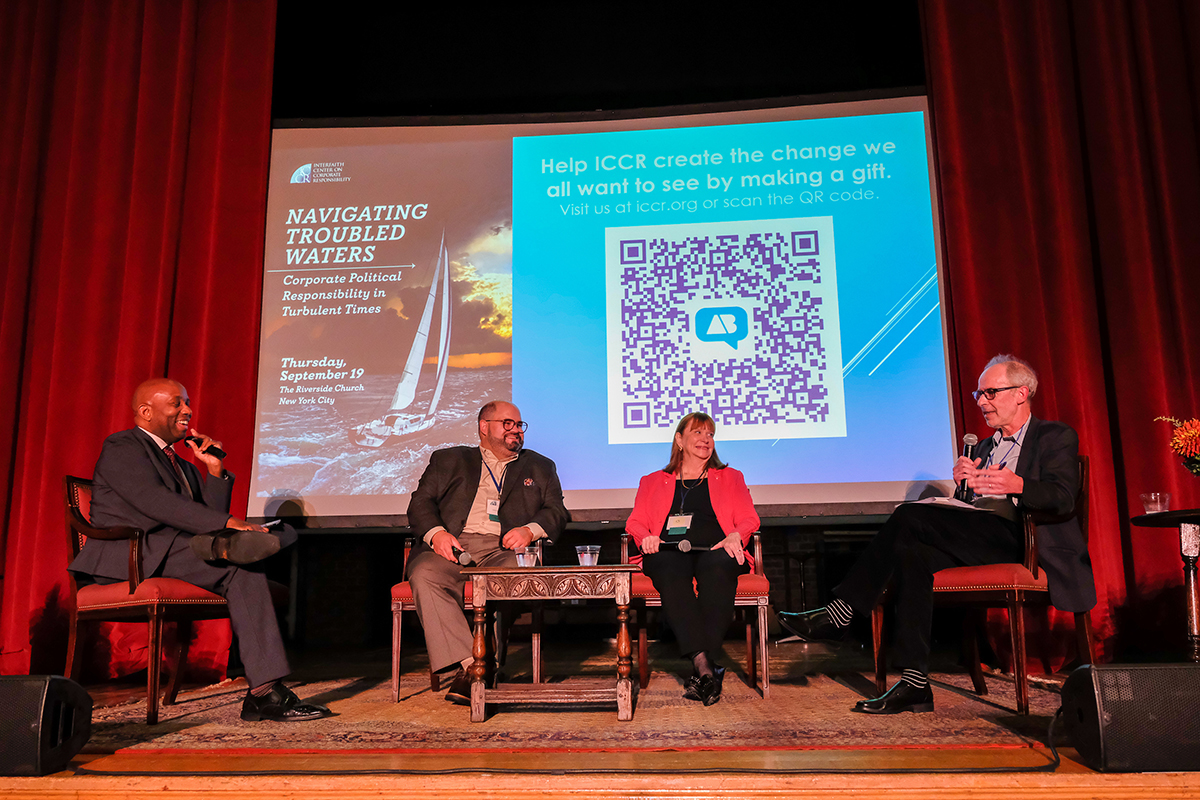In Wake of Jan 6, Investors Representing $US1.69 Trillion Call on Companies to Reconsider Political Giving
Attack on Congress seen as wake up call for companies on the inherent risks of corporate money in politics to both business and the public interest.
NEW YORK, NY, THURSDAY, FEBRUARY 11TH, 2021 – A group of 81 institutional investors representing $US1.69T have endorsed a statement sent to CEO members of the Business Roundtable in the aftermath of the January 6th attack on Congress, urging them to refrain from the practice of political giving for at least six months or until such time as a thorough risk assessment can be undertaken.
Citing the potential risks of political spending not only to businesses, but to the broader political system and the public interest, the investors further called on companies to consider implementing more permanent steps to end all political spending including through direct donations to politicians, Political Action Committees (PACS), Super PACs, 527 committees or anonymously through trade associations and “social welfare” organizations (also known as 501(c)(4) groups).
In response to the 147 members of Congress who voted against certifying the results of the Presidential election, many companies saw the reputational risks inherent in these donations and, as a result, issued statements announcing that they were temporarily withdrawing their financial support for the legislators; another group of companies comprised of mainly banks and tech companies announced they were suspending all political spending, pending a more comprehensive review.
The investors say these suspensions and reviews are good first steps, but bolder action is needed.
“Many corporations are urgently evaluating appropriate options for their companies related to political spending, a welcome and important step; this is a timely moment for an in-depth board review of these practices,” said Tim Smith of Boston Trust Walden. “Investors have long raised the issue of reputational risk for companies from controversial lobbying and political spending related to elections.”
The statement cites the distortion of public policy and corrupting influence on political systems caused by corporate political spending and calls out its destabilizing effect on the broader economic and cultural environment which can inhibit the long-term sustainability of business. This viewpoint has been shared in many opinion pieces, including by prominent industry thought leaders.
Specifically, the investors request that companies strongly consider voluntarily:
- Ending all political spending at the federal, state and local levels;
- Shutting down corporate Political Action Committees (PACs);
- Ending all contributions to Super PACs;
- Ending contributions to partisan state-focused 527 committees;
- Ending the flow of corporate “dark money” to so-called “nonprofit” groups;
- Fully disclosing how much and to which intermediaries they contribute, including trade associations and other third-party groups that use that money to influence policy.
“While companies may perceive a short-term gain from funneling money to elected officials, the reputational risk that they face and, more critically, the corrosive effect on democracy of corporate money in politics should give them pause,” said Josh Zinner, ICCR’s CEO. “January 6th should have sounded the alarm: it is vitally important for companies to carefully evaluate the problematic impacts of their political spending.”
The investors say they are bringing these requests into their ongoing engagements with portfolio companies.
About the Interfaith Center on Corporate Responsibility (ICCR)
Celebrating its 50th year, ICCR is the pioneer coalition of shareholder advocates who view the management of their investments as a catalyst for social change. Its 300-member organizations comprise faith communities, socially responsible asset managers, unions, pensions, NGOs and other socially responsible investors with combined assets of over $2 trillion. ICCR members engage hundreds of corporations annually in an effort to foster greater corporate accountability. Visit our website www.iccr.org and follow us on Twitter, LinkedIn and Facebook.









